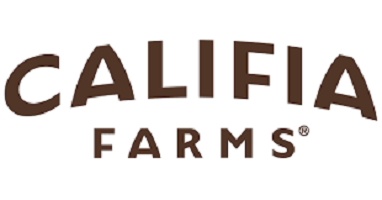“Transforming Spaces” is a series about women driving change in sometimes unexpected places.
Data has long been in the background of Abigail Echo-Hawk’s life. Growing up in rural Alaska, she remembers hearing stories about Indigenous data gatherers, like an uncle who counted beavers every spring so he’d know how many could be sustainably hunted the following winter.
But it wasn’t until her early 20s that Ms. Echo-Hawk realized that data was not just information — it could also be power. After reading a report from the Urban Indian Health Institute about infant mortality in Washington State’s Native community, Ms. Echo-Hawk shared it with a volunteer commission on which she served. That led to a 2012 Seattle ordinance protecting the right to breastfeed in public, as breastfeeding is linked to reduced infant mortality.
“A story by itself makes it easy for somebody to say this was just one person’s experience,” said Ms. Echo-Hawk, who lives outside Seattle and is a citizen of the Pawnee Nation. Data, on the other hand, makes people pay attention.
Ms. Echo-Hawk has since become a leading voice of the Indigenous data movement. She now directs the Urban Indian Health Institute, and is the executive vice president of its overseeing body, the Seattle Indian Health Board. She wields data as a tool for racial equity, using it to dismantle stereotypes, highlight disparities and vie for funding.
Though Ms. Echo-Hawk admitted that even her own mother doesn’t really understand what she does, much of it boils down to making sure Indigenous people are counted.
“Her work tackling health inequities and bringing attention to the disturbing gaps in public health data for tribal communities is nationally recognized,” Senator Patty Murray, Democrat of Washington, said in an email. “Abigail is a change maker in the truest sense of the word.”
Ms. Echo-Hawk rose to national prominence in 2018, when she released data on the high rates of sexual violence experienced by Native women. That was followed by a much-cited report on missing and murdered Indigenous women and girls. Though Ms. Echo-Hawk was far from the first or only person to draw attention to the issue of the missing women, more than a dozen states created corresponding task forces or reports in the years following. Congress also passed two related laws.
In an email, Senator Maria Cantwell, Democrat of Washington, credited that report for heightening national awareness around missing and murdered Indigenous women. “Abigail Echo-Hawk will go down as one of the great Indian leaders of the 21st century,” she said.
In 2020, Ms. Echo-Hawk made waves again when she called out the Centers for Disease Control and Prevention for failing to share data about Covid-19’s spread among Native communities. The agency acknowledged there had been a “significant miscommunication” and promised to get tribal epidemiologists the data they needed. The following year, Ms. Echo-Hawk landed in Vogue after making a traditional dress from body bags that were sent to her organization in lieu of the personal protective equipment she had requested.
Ms. Echo-Hawk, 44, comes from a well-known family of Indigenous advocates. Her adopted grandmother fought for subsistence fishing rights all the way to the U.S. Supreme Court. One uncle helped found the Native American Rights Fund; another helped write the Native American Graves Protection and Repatriation Act. One sister ran for mayor of Seattle in 2021.
Sofia Locklear, a member of the Lumbee Tribe and an assistant professor of sociology at the University of Toronto-Mississauga, said Ms. Echo-Hawk, her former mentor, had forced researchers to rethink fundamental questions like: Whom are we collecting data about? Who is collecting it? And what story are we trying to tell?
Because the nation’s American Indian and Alaska Native population is relatively small — 9.7 million people — some studies relegate it to an asterisk: “not statistically significant.” Yet some public health experts say that’s harmful.
The lack of data is “a way to erase Native people from dominant society,” said Melissa Walls, who is of Anishinaabe descent and is the co-director of the Johns Hopkins Center for Indigenous Health. “A lot of policy decisions are made based on data. And if there’s no data to tell the story of a given community, money’s not going to flow in our direction.”
Good data, on the other hand, can lead to changes in policy — and in mindset. As an example, Ms. Echo-Hawk referred to her organization’s report on sexual violence. “That changes the perceptions of what is happening,” she said. “We are not all killing ourselves because there’s something wrong with us. We have high rates of suicidality because of trauma.”
Ms. Echo-Hawk is a survivor of trauma herself. She was first sexually abused at age 6, and she first attempted suicide at age 9. In her late teens, she moved to Seattle, where she married and became pregnant with the first of two sons. After feeling stigmatized at the local hospital by a medical assistant who checked her arms for signs of drug use, Ms. Echo-Hawk found her way to the Seattle Indian Health Board.
“They got me on food stamps, they gave me medical services, and they did it in a culturally based way,” said Ms. Echo-Hawk, who is now divorced. “I was able to begin this healing process.”
For the next decade, Ms. Echo-Hawk cut hair during the day and took classes at night. In 2016, she joined the research arm of the Seattle Indian Health Board. In the years since, the annual operating budget for her departments has surged to $9 million from around $1 million, an increase credited to her.
Besides publishing studies, Ms. Echo-Hawk teaches researchers how to include Indigenous people in the data. She also helps hospitals and law enforcement agencies change their data collection practices to reduce racial misclassification. (As Ms. Echo-Hawk put it: “A common saying in Indian Country is that you’re born Native and you die white — that’s what they mark you as on the death certificate because nobody asks you.”)
Though several people were effusive in their praise of Ms. Echo-Hawk, one Indigenous public health expert suggested that others had made more measurable impacts in the field, but had garnered less attention. That is both a critique and a compliment, as many say that’s exactly where Ms. Echo-Hawk shines: in drawing the public eye.
“If you have ever been in a room with her or seen her talk in person, you will never forget it,” Ms. Locklear said. Many called Ms. Echo-Hawk “bold” and “unapologetic,” traits that are reflected in the animal prints, high heels and the “big Native auntie laugh” she’s known for.
Ms. Echo-Hawk now spends much of her time doing what she’s best at: talking. In the past four years, she has testified in front of Congress numerous times, and has consulted with several lawmakers to make their bills’ language more inclusive. She answers dozens of emails each month from tribes interested in beginning their own data gathering projects. She serves on a dizzying array of committees, including at the National Institutes of Health and at The Lancet, a leading medical journal.
“She asks the questions that people shy away from,” said Dr. Aletha Maybank, the chief health equity officer for the American Medical Association and a co-chair of The Lancet commission on antiracism on which Ms. Echo-Hawk serves.
Ms. Echo-Hawk still cuts hair for loved ones, too: a throwback to her days as a young mom putting herself through school. She relishes the opportunity to be creative, as well as the ability to know when the job is done.
“You have to have something in your life that, you know, you can see to completion,” she said.
Credit: Source link













